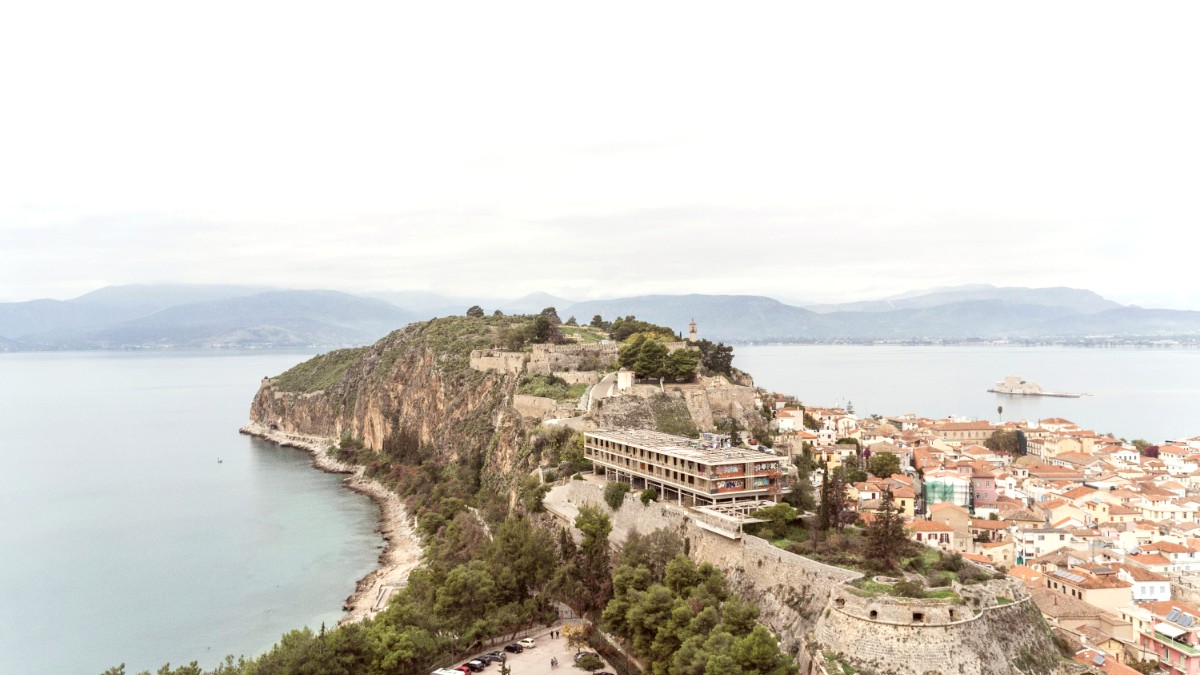
The Peloponnese, Greece
Spring (April-May) brings a refreshing change. Temperatures are pleasantly mild, typically ranging from 15 to 25 degrees Celsius (59 to 77 degrees Fahrenheit). Rainfall occurs occasionally, usually as brief showers. The warmth of the sun is gentle, perfect for long walks and outdoor dining.
Autumn (September-October) offers a delightful transition, combining the lingering warmth of summer with the mildness of spring. Temperatures range from 20 to 30 degrees Celsius (68 to 86 degrees Fahrenheit) in early autumn, cooling gradually. Rainfall is low in September but increases moderately towards late October. The sea retains its warmth from the summer.
Winter in Nafplio, spanning November to March, brings cooler temperatures and more frequent rainfall. Temperatures typically range from 10 to 18 degrees Celsius (50 to 64 degrees Fahrenheit).
The city experiences fewer tourists, providing a peaceful atmosphere and a chance to experience local life without the summer bustle. Some tourist-focused businesses may have reduced hours or close for the season.
July-August
Warmest weather, all services open, lively atmosphere.
Large crowds, peak prices, very high temperatures.
April-June & Sept-Oct
Pleasant temperatures, fewer crowds, better prices, all major attractions open.
Sea water may be cooler early/late in season, some seasonal businesses may be closed.
November-March
Fewest crowds, lowest prices, peaceful local experience.
Cooler weather, higher chance of rain, limited tourist businesses.
Heatwaves are a consideration during July and August, when temperatures can exceed 40 degrees Celsius (104 degrees Fahrenheit). During these periods, stay hydrated, seek shade, and avoid strenuous outdoor activities during the hottest parts of the day.
Thunderstorms can occur in spring and autumn, usually as short, intense bursts of rain and lightning that clear quickly. These can disrupt outdoor plans temporarily.
Spring (April-June) and Autumn (September-October) offer comfortable temperatures.
June to September provides the warmest sea temperatures.
Many larger festivals occur in late spring or early autumn, e.g., Nafplion Festival in June.
Always check the local weather forecast before daily excursions.
Plan outdoor activities for early mornings or late afternoons during summer.
Greece, as a member of the Schengen Area, adheres to specific regulations for non-European Union citizens.
Non-EU, EEA, or Swiss citizens planning stays of up to 90 days within any 180-day period for tourism, business, or transit often need a Schengen visa. Apply through the Greek embassy or consulate in your home country.
Citizens of many countries do not need a visa for stays up to 90 days within the Schengen Area. This includes citizens from the United States, Canada, Australia, the United Kingdom, Japan, South Korea, and many others.
Nafplio includes options for various travel styles, from budget-friendly to luxury experiences.
The official currency of Greece is the Euro (€). ATMs are widely available throughout Nafplio, notably in the Old Town and newer commercial areas. Banks also offer currency exchange services during business hours.
Credit and debit cards, especially Visa and Mastercard, are accepted in larger establishments, hotels, and many restaurants. Smaller shops, local cafes, and market vendors may prefer cash, so carrying some Euros for small purchases and tips is helpful.
Daily costs for those aiming for the most economical trip.
Daily Spend: €40-€70
Accommodation: Hostel bed/basic guesthouse (€20-€35).
A balance of comfort and value for moderate spending.
Daily Spend: €80-€150
Accommodation: Mid-range hotel/apartment (€50-€90).
For those seeking premium experiences and amenities.
Daily Spend: €180+
Accommodation: Boutique/luxury hotel (€100-€300+).
| Category | Item | Price Range (€) |
|---|---|---|
| Accommodation (per night) | Hostel/Budget Guesthouse | 20-40 |
| Meals | Street Food/Snack | 3-7 |
| Attractions | Palamidi Fortress | 10 |
Greece maintains good public health standards and offers a safe environment for visitors.
Greece does not generally require specific vaccinations for entry.
Consult your doctor 4-6 weeks before for routine vaccinations (MMR, DTP, Polio) and consider Hepatitis A/B.
Stay hydrated, use High-SPF sunscreen, wear a Wide-brimmed hat, seek shade during peak sun hours.
Prevention is for comfortable travel.
Mosquitoes can be present, specifically in warmer months and near water. Use Insect repellent. Minor stomach upset can occur from changes in diet. Practice good food hygiene and consider carrying Anti-diarrhea medication.
Tap water in Nafplio is generally safe to drink. Many locals drink it, and it meets EU standards. Bottled water is widely available.
Food hygiene standards in restaurants and eateries are typically high.
Connects to police, fire, and ambulance services; operates in multiple languages.
General Hospital of Argolis - Nafplio (Kolokotroni 16, Nafplio 211 00).
Recognized by a green cross sign, well-stocked, pharmacists offer advice for minor ailments.
Nafplio enjoys a reputation as a very safe city with low crime rates. Violent crime against tourists remains rare. Petty crime, like pickpocketing, can occur in crowded tourist areas or on public transport, but it is not a common issue in Nafplio.
Travel insurance is recommended for all travelers. Ensure your policy covers medical emergencies, evacuation, trip cancellation, and baggage loss. Review policy details to confirm coverage for planned activities.
Police: 100, Ambulance: 166, Fire Department: 199, European Emergency Number: 112.
Keep digital and physical copies of passport, visa, and insurance policies separate from originals.
Register with your embassy's travel advisory system for alerts and emergency contact.